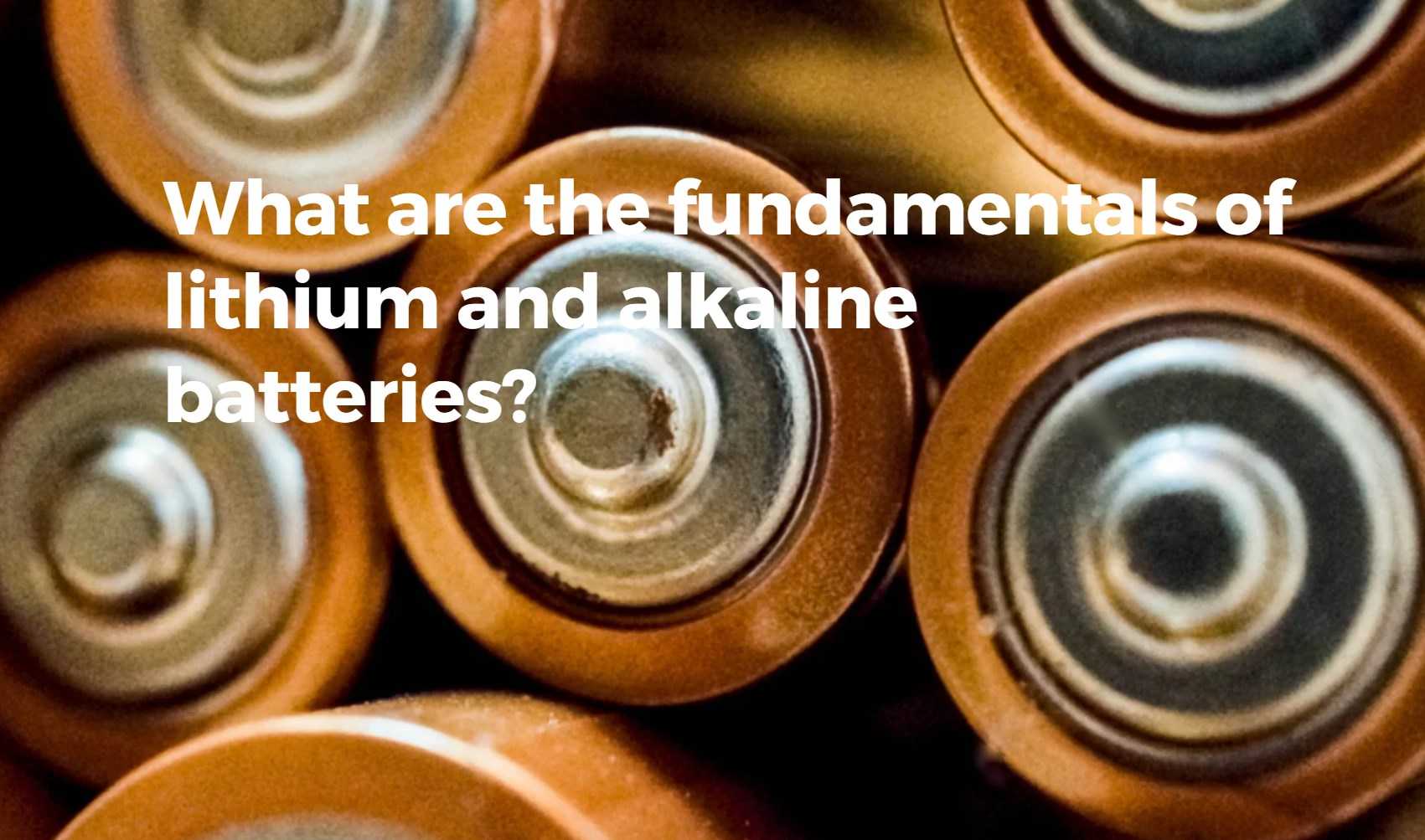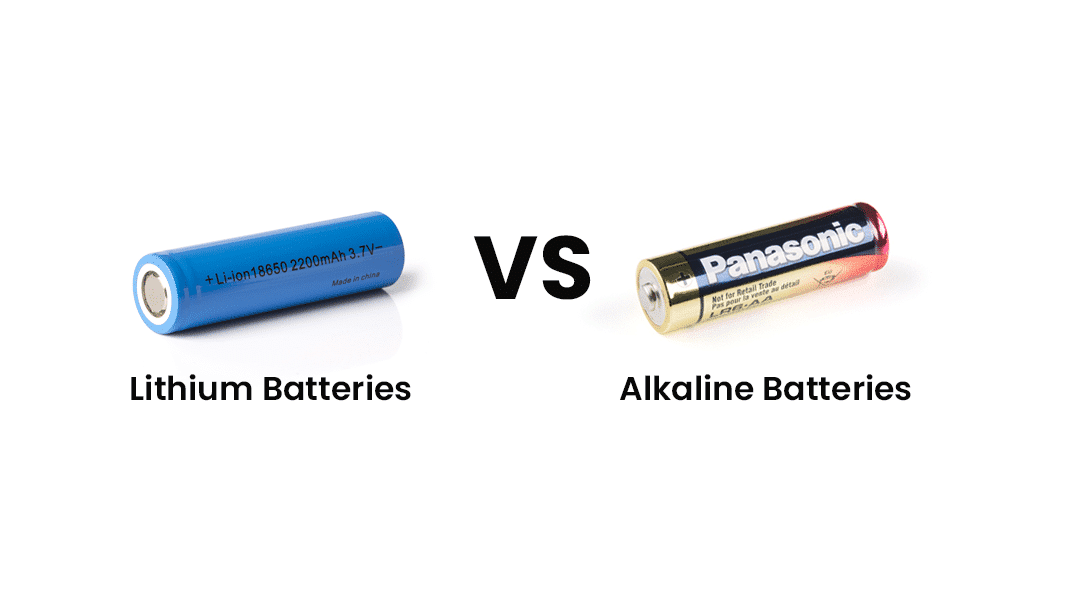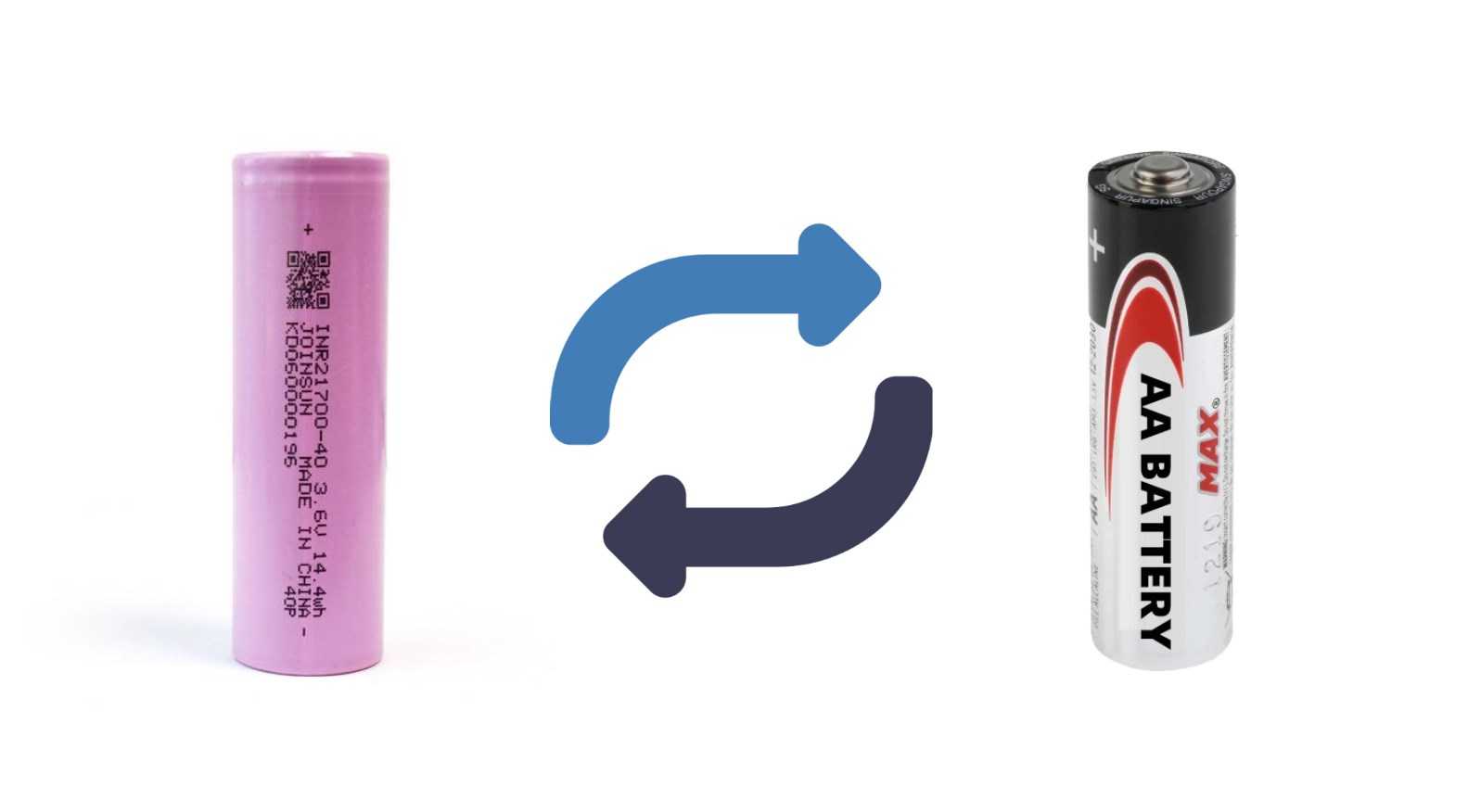When comparing lithium batteries to alkaline batteries, understanding their distinct characteristics is essential for making informed choices about power sources for various devices. While lithium batteries offer superior energy density and longevity, alkaline batteries remain cost-effective for low-drain applications.
What Are the Key Differences Between Lithium and Alkaline Batteries?
Lithium batteries stand out due to their higher energy density, which allows them to store more energy in a compact form compared to alkaline batteries, which are bulkier for similar capacities. This fundamental difference impacts their usability across various devices, particularly those requiring sustained power.
What Are the Advantages of Using Lithium Batteries?
Lithium batteries provide numerous advantages, including longer lifespan, higher energy density, lower self-discharge rates, and faster charging capabilities compared to alkaline counterparts. These features make lithium batteries ideal for high-drain devices such as digital cameras and smartphones.
What Are the Disadvantages of Using Lithium Batteries?
Despite their benefits, lithium batteries come with disadvantages such as higher initial costs, sensitivity to temperature extremes, and potential safety concerns related to overheating or fire hazards if improperly used or manufactured.
How Do Lithium and Alkaline Batteries Compare in Lifespan?
Lithium batteries typically outlast alkaline batteries significantly; while alkaline batteries may last around 300 cycles, lithium options can endure anywhere from 10,000 to 40,000 cycles depending on usage conditions.
What Is the Energy Density of Lithium vs. Alkaline Batteries?
Lithium batteries possess a much higher energy density than alkaline batteries, allowing them to deliver longer-lasting power in smaller packages—an essential factor for portable electronics where space is limited.
How Do Voltage Outputs Differ Between Lithium and Alkaline Batteries?
Lithium batteries generally provide a voltage output ranging from 1.75V to 3V per cell, whereas alkaline batteries maintain a nominal voltage of about 1.5V per cell, affecting performance in devices that require consistent power delivery.
What Are the Best Use Cases for Each Type of Battery?
Lithium batteries excel in high-performance applications such as digital cameras, laptops, and medical devices due to their longevity and efficiency, while alkaline batteries are more suited for low-drain devices like remote controls or clocks.
What Are the Environmental Impacts of Lithium and Alkaline Batteries?
The environmental impact varies; while lithium batteries can be recycled effectively, their production involves mining practices that raise sustainability concerns. In contrast, alkaline batteries contribute more waste due to being single-use products.
How Do Temperature Sensitivities Affect Battery Performance?
Lithium batteries perform better under extreme temperatures compared to alkaline batteries, which can suffer reduced efficiency or failure when exposed to cold or heat—making lithium preferable for outdoor or variable climate applications.
What Are the Recycling Options for Lithium and Alkaline Batteries?
Recycling options differ significantly; lithium battery recycling processes are evolving but can be complex due to material separation requirements, while alkaline battery recycling is simpler but less commonly practiced due to lower environmental impact concerns.
How Do Safety Concerns Differ Between Lithium and Alkaline Batteries?
Safety concerns are more pronounced with lithium batteries due to risks associated with overheating or potential fires if damaged or improperly handled; alkaline batteries pose fewer risks but can leak harmful substances if not disposed of correctly.
Expert Views
“Understanding the nuances between lithium and alkaline batteries is crucial for consumers seeking optimal performance from their devices—choosing wisely can lead not only to enhanced efficiency but also significant cost savings over time.”
A common question many consumers ask is: what’s the difference between alkaline and lithium batteries? While both power everyday devices, their performance characteristics vary significantly. When comparing what’s the difference between lithium and alkaline batteries, the most notable distinctions are energy density, lifespan, and operating temperature range.
Lithium batteries outperform alkaline in extreme conditions, making them ideal for high-drain devices like cameras and medical equipment. In contrast, alkaline batteries are more cost-effective for low-drain items like remote controls. If you’re wondering what’s the difference between lithium batteries and alkaline batteries in terms of voltage, lithium cells typically maintain a steady 1.5V until depletion, while alkaline voltage gradually declines.
For those comparing what’s the difference between a lithium and alkaline battery for rechargeability, lithium options (like those from Redway Battery, China LiFePO4 Battery Wholesale Supplier) offer reusable solutions, whereas standard alkaline batteries are single-use. Whether evaluating what’s the difference between alkaline batteries and lithium batteries, your choice ultimately depends on application needs and budget considerations.
FAQs
- Which battery lasts longer: lithium or alkaline?
Lithium batteries generally last significantly longer than alkaline ones due to their superior cycle life. - Are lithium batteries worth the higher cost?
Yes, despite their higher upfront cost, lithium batteries often provide better value over time due to their longevity and performance. - Can I use lithium batteries in any device that takes alkaline?
While many devices can use both types, check compatibility as some may require specific battery types for optimal performance.
Know more:
Are lithium batteries interchangeable with alkaline batteries?
How to tell if a battery is alkaline or lithium?
Are Duracell batteries lithium or alkaline?
What is the difference between alkaline and lithium batteries?
What happens if I use lithium batteries instead of alkaline?
Using Lithium Batteries Instead of Alkaline: What You Need to Know
Lithium batteries and alkaline batteries are two commonly used types of batteries. Alkaline batteries have a cathode made of manganese dioxide and an anode made of zinc powder, while lithium batteries have a cathode made of lithium ions and a carbon anode. The main difference between the two is their voltage, capacity, and energy density. Lithium batteries have a higher voltage and energy density, providing more power and storing more energy in a smaller space. However, alkaline batteries have a higher capacity, lasting longer before replacement. It’s important to consider device compatibility and optimal performance when deciding to use lithium batteries instead of alkaline.
Which battery is better lithium ion or alkaline?
- Lithium-ion Batteries: Lithium-ion batteries are rechargeable and offer higher energy density, longer lifespan, and lighter weight. They are commonly used in high-tech devices that require consistent power output.
- Alkaline Batteries: Alkaline batteries are disposable, have a lower upfront cost, and are widely available. They are suitable for low-drain devices and everyday use.
- Considerations: When choosing between lithium-ion and alkaline batteries, consider the specific needs of the device, budget, and desired performance. If rechargeability and higher energy density are important, lithium-ion batteries may be the better choice. However, if cost-effectiveness and availability are priorities, alkaline batteries are a suitable option.
Are AA batteries lithium or alkaline?
AA batteries can be composed of different materials, including alkaline, lithium, carbon-zinc, or NiMH composition. Alkaline AA batteries are commonly used and cost-effective, suitable for low to moderate drain devices. On the other hand, lithium AA batteries offer a longer lifespan, superior performance in extreme temperatures, and lighter weight, making them ideal for high-drain devices. When purchasing AA batteries, it’s important to check the label or packaging to determine whether they are lithium or alkaline.
Where to find the best lithium battery manufacturer?
- The best lithium battery manufacturers can be found through online sources that provide comprehensive lists and rankings.
- Reputable manufacturers in the industry include LG Energy Solution, Panasonic Corporation, BYD Company Ltd, and Samsung SDI.
- Consider factors such as product reliability, performance, and customer reviews when choosing a lithium battery manufacturer.
How does lithium battery price compare to alkaline?
- Lithium batteries may cost 5 times more than alkaline batteries.
- However, lithium batteries have a significantly longer lifespan.
- They can last 8 or even 10 cycles longer than alkaline batteries.
- This makes lithium batteries a cost-effective choice in the long run, despite the higher initial price.
What alkaline and lithium battery types are available?
- Alkaline batteries, such as Energizer MAX®, are disposable and cannot be easily recharged after a single use.
- Lithium batteries come in various types, including lithium-ion (Li-ion) and lithium-polymer (LiPo) batteries.
- Lithium batteries are rechargeable and offer higher energy density compared to alkaline batteries.
- Consider the specific needs of your application and the importance of rechargeability when choosing between alkaline and lithium batteries.
What are the fundamentals of lithium and alkaline batteries?

- Lithium batteries have high energy density, long lifespan, and light weight.
- They have a low self-discharge rate and stable charging cycle.
- Alkaline batteries are manganese/zinc galvanic batteries with an alkaline electrolyte.
- They have a lower cycle life, higher self-discharge rate, and potential memory effect.
- Consider these factors when choosing the appropriate battery for your needs.
Know more:
lithium vs alkaline batteries life
lithium aa batteries vs alkaline
lithium ion battery vs alkaline





